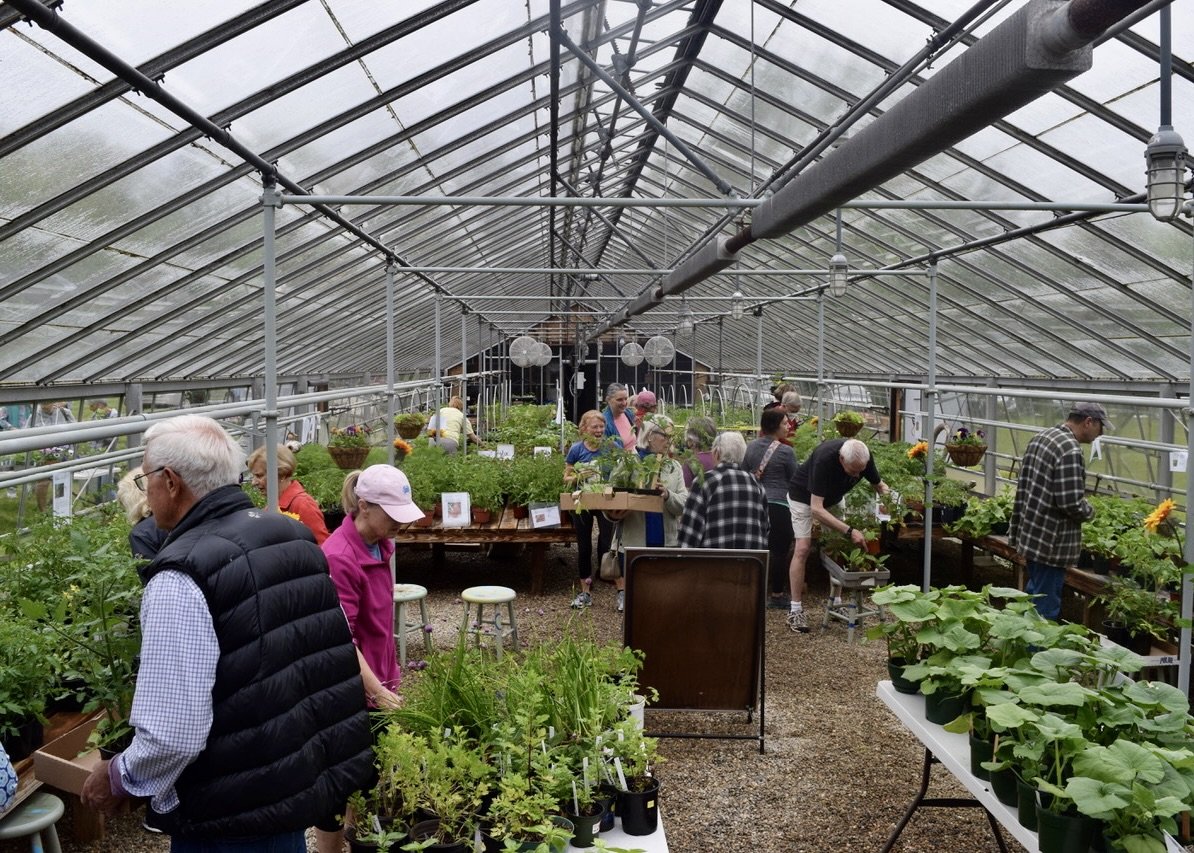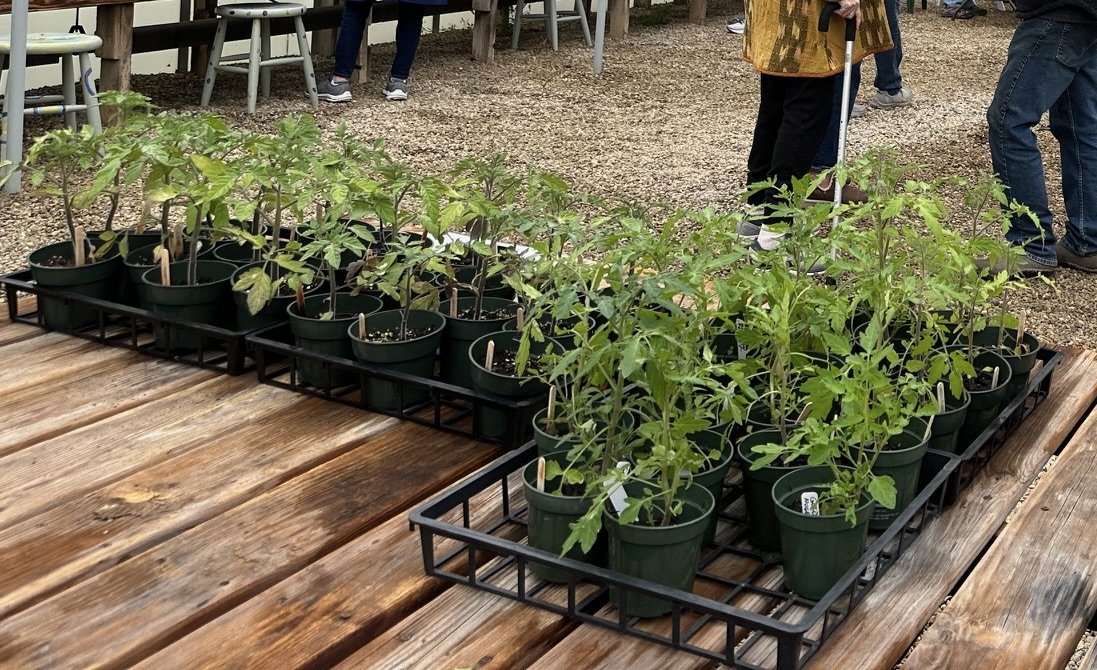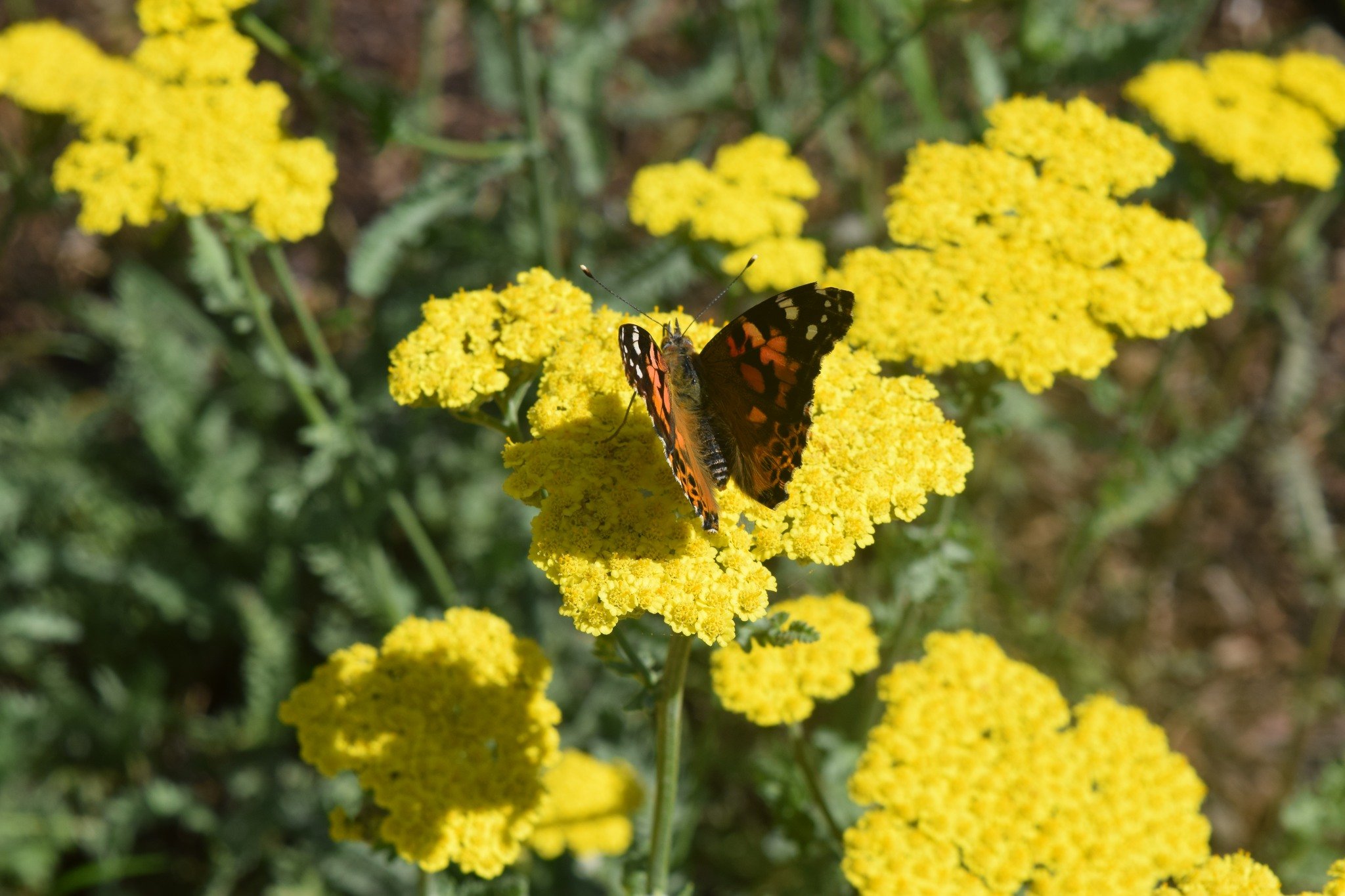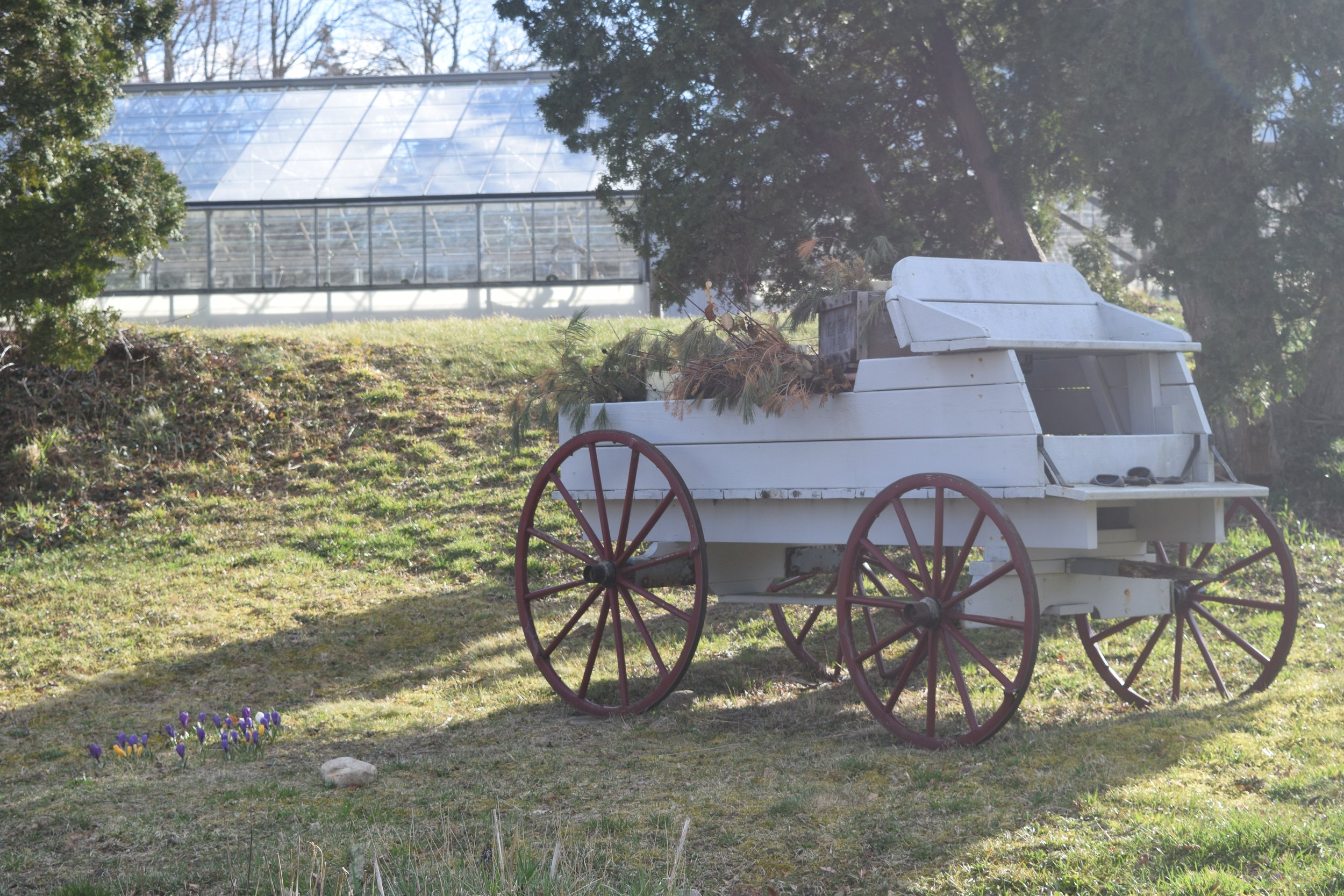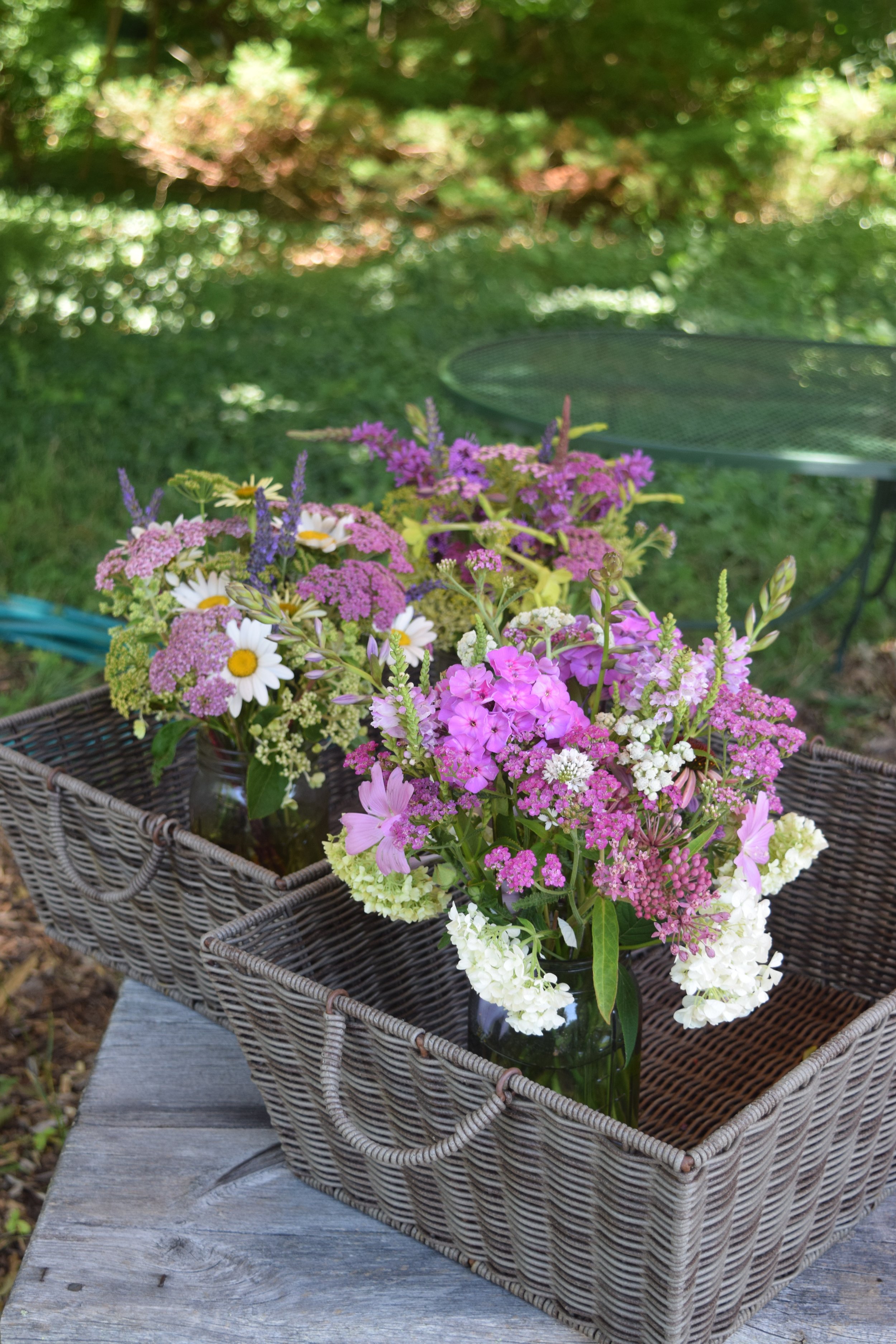
We model sustainable gardening and farming practices, provide a natural oasis for contemplation and peace, and celebrate community.
The History of Meetinghouse Farm
Meetinghouse Farm’s Early Years
Located in the midst of West Barnstable’s historic district, Meetinghouse Farm provides a link to West Barnstable’s agricultural and horticultural past. The site was originally part of a large land grant given to Deacon William Crocker in 1653. As noted by local Historian Martin Wirtanen, “the Crocker Family were mainstays of the village, successfully farming several hundred acres and generations of the families were involved in the social, political and religious affairs of the village.”
Throughout the years, portions of this land grant were sold off, including a large parcel, which was sold to Matthew Paine in the mid- to late 1700s and which eventually became Meetinghouse Farm. The Paine family built a residence on the site, which survives to this day, and which was added to by the subsequent owner, Thomas Black. The house, now known as the Paine Black House, still sits on the far northern edge of the Meetinghouse Farm property, and is largely intact, with many original features such as a large beehive oven. The house is currently managed by the Town.
The Conant Years
After changing hands many times, the Paine Black property was ultimately acquired by Fred Conant and Ruth Jenkins in 1938. For 50 years, Fred Conant operated a thriving nursery and landscaping business on the 23-acre site. In its early years, the business provided plants and landscaping services to large estates in Osterville, and many young entrepreneurs started their horticultural careers at Conant’s.
In later years, as the Cape developed and residential landscaping and gardening became more popular, Conant’s was a favorite horticultural destination. Locals fondly remember Conant’s many greenhouses bursting with colorful spring primroses, stately topiaries, and promising saplings. Generations of families planted Conant stock that grew along with their children. With the death of Fred Conant in 1991, the nursery closed, and in 1998, after years of dispute about the future of the property, the site was proposed for residential subdivision.
Growing a Community Farm and Garden
The proposal for residential development of “the Conant Property” generated strong grassroots opposition. For almost three years, residents and local officials sought alternative options for the property. In January 2000, the Town of Barnstable finally purchased the site for public use and designated the property as conservation land. Unfortunately, due to years of disuse, many of the greenhouses on the site were badly deteriorated and had to be demolished. Citizen efforts, however, saved the historic 3000 sq. ft. Lord and Burnham greenhouse, along with a number of other support structures on the property.
After the town’s acquisition, local teacher and community activist Judy Desrochers gathered supporters and began an informal partnership with the Town of Barnstable to rehabilitate the property and re-establish its horticultural use. Meetinghouse Farm, Inc. was formally established in 2004 as a non-profit volunteer organization, with Judy serving as its president. In 2007, Meetinghouse Farm was awarded the first of several multi-year management contracts to care for the property and develop a Community Farm and Garden on the site.
At the beginning, Meetinghouse Farm volunteers were faced with an overgrown site, no running water, a deteriorated greenhouse, and failing structures. With the help of grants and private donations, the Farm installed a new pump and an irrigation system to support gardening activities, and made significant repairs to the greenhouse. Volunteers pruned back invasive Oriental bittersweet and Japanese knotweed that threatened the Farm’s woodlands, and established demonstration gardens, community garden plots, and a seasonal farm stand. In 2022, after years of fundraising, the Farm also created the Woodland Labyrinth, one of only 12 such paths on public land in Massachusetts.
For more than twenty years, an enthusiastic all-volunteer board, a far-ranging community of gardeners, and countless volunteers have created a resilient, welcoming natural environment for gardening, contemplation, and recreation, benefitting not only the West Barnstable community, but also the surrounding villages and the Cape as a whole. Come grow with us!
Visiting
Visitors are invited to hike the Farm’s short loop trail and visit the Farm’s gardens. The Farm offers lectures and workshops on horticulture and related topics, rents individual garden plots and greenhouse benches, maintains a seasonal farm stand, encourages use by community and gardening organizations, and offers field trip and community service opportunities to local students and organizations.
Meetinghouse Farm is currently open to the public from dawn to dusk.
Collaborations
Meetinghouse Farm works with many local and national horticultural, agricultural, educational, and other organizations, including:
Cape & Islands Council, Scouting America, Cotuit Troop 52
Dig & Delve Garden Club of West Barnstable
Hyannis Youth & Community Center After School Programming
Project Forward West Barnstable
Sturgis West Public Charter School, Day of Public Service
Board of Directors
2025
Earl Springer, President
Joseph Leary, Vice President
Lois Andre, Treasurer
Stephanie York, Secretary
Matthew Chamsarian
Kathleen Creamans
Ellen Karel
Jeanne Pelletier
Info@MeetinghouseFarm.org
Meetinghouse Farm, Inc. P.O. Box 330
West Barnstable, MA 02668
Directions
Contact
2135 Meetinghouse Way (Rt. 149)
West Barnstable, MA 02668
Become A Volunteer!
Meetinghouse Farm is possible only through the work of the volunteers that run it. We are always looking for people to help us in a wide range of tasks, both on the farm and virtually.
If you can spare a little time and energy, we would love to have you on board!
